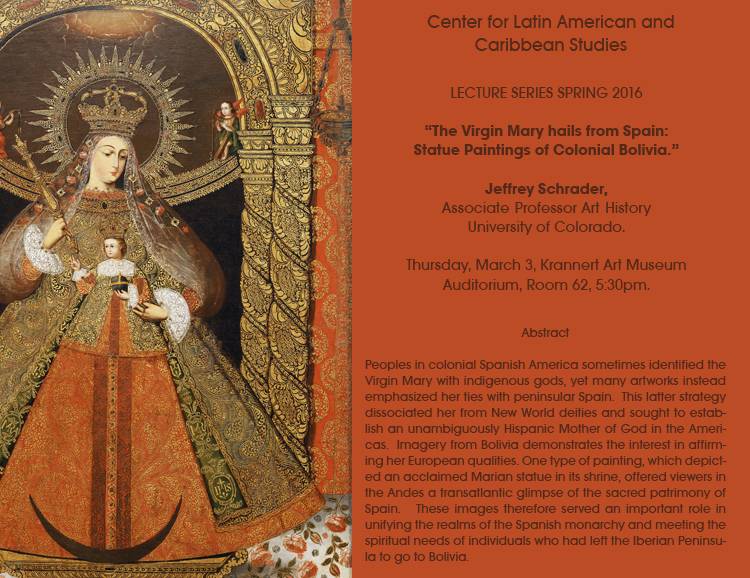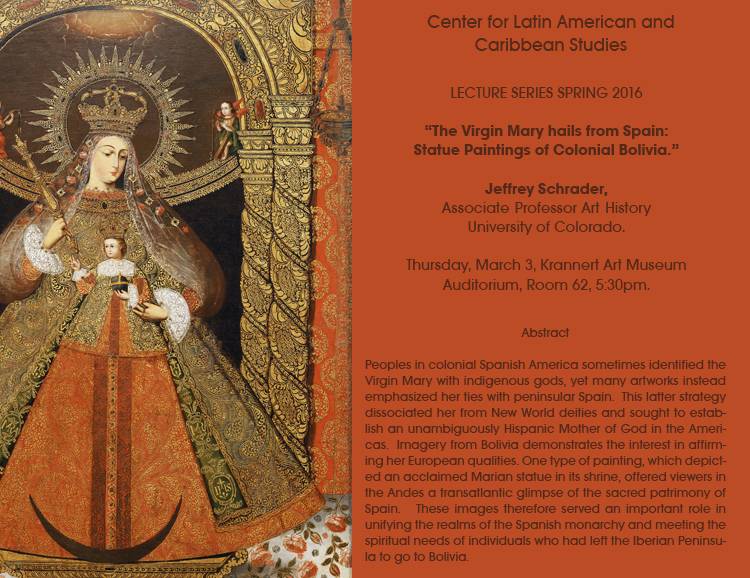 This month’s academic events include an introduction to Illinois’s first Arctic explorer, a performance of Italian popular music, and an inside scoop on the migration experiences of more than 160 Greek migrant confectioners in central Illinois.
This month’s academic events include an introduction to Illinois’s first Arctic explorer, a performance of Italian popular music, and an inside scoop on the migration experiences of more than 160 Greek migrant confectioners in central Illinois.
WHAT: Film: “Hmong Memory at the Crossroads”
WHEN: March 2 at 3 p.m.
WHERE: Knight Auditorium, Spurlock Museum
ABOUT: Liachoua Lee, a Hmong-American from Rochester Hills, Michigan, revisits his past as a former refugee and son of Hmong veterans of the French Indochina War (1946-1954), and of the American Secret War in Laos (1961-1975), by revisiting places that carry traces of his personal history and the emotional scars left by the war. Lee’s story begins in Detroit, Michigan, then takes him to France, a place where he and his family sought asylum before immigrating to America, and ends in an emotional return to the homeland Laos for the first time in 40 years. The film documents Lee’s re-reading of key chapters of his refugee history, re-creating memories of wartime as experienced by the child he was then.
——————————————————————————————————————————-
WHAT: Film: “Winter Sleep” (Turkish)
WHEN: March 2 at 6 p.m.
WHERE: Lucy Ellis Lounge, 1080 Foreign Languages Building
ABOUT: This film is part of the Less Commonly Taught Languages Film Series. All films are shown in the original language with English subtitles.
——————————————————————————————————————————-
WHAT: Concert Band & Wind Ensemble Joint Concert
WHEN: March 2 at 7 p.m.
WHERE: Parkland College’s Harold and Jean Miner Theatre
ABOUT: The concert band, directed by Larry Stoner, will perform Transcendent Journey by Rossano Galante, Vittorio Giannini’s Fantasia for Band, March of the Steelmen by Charles Belsterling, and The Universal Judgment by Camillo de Nardis. Musical selections for the wind ensemble, directed by Jonathan Beckett, will feature selections from The Wizard of Oz, a tribute to Duke Ellington, an overture by Rossini, and band music by Gordon Jacob and Malcolm Arnold.
——————————————————————————————————————————-
WHAT: Lecture: “Europe’s Russian Colonies: East-West Migration and the Struggle for Freedom in Nineteenth-Century Europe”
WHEN: March 3 at 4 p.m.
WHERE: 101 International Studies Building (910 S. Fifth Street, Champaign)
ABOUT: In the second half of the nineteenth century, hundreds of thousands of tsarist subjects left the empire of their birth for the large urban centers and university towns of central and western Europe. The travelers came from every corner of the Russian empire and from many walks of life: there were students and political radicals, labor migrants and artists among them. Yet in spite of their differences, the migrants gravitated toward one another in exile, creating close-knit and intellectually vibrant communities that they referred to as “Russian colonies.” This talk will reconstruct the internal lives of these unique communities, and it will examine how Europe’s “Russian colonies” shaped the world beyond their borders.
——————————————————————————————————————————-
WHAT: Lecture: “The Virgin Mary Hails from Spain: Statue Paintings of Colonial Bolivia”
WHEN: March 3 at 5:30 p.m.
WHERE: Krannert Art Museum, Room 62
ABOUT: Peoples in colonial Spanish America sometimes identified the Virgin Mary with indigenous gods, yet many artworks instead emphasized her ties with peninsular Spain. This latter strategy dissociated her from New World deities and sought to establish an unambiguously Hispanic Mother of God in the Americas. Imagery from Bolivia demonstrates the interest in affirming her European qualities. One type of painting, which depicted an acclaimed Marian statue in its shrine, offered viewers in the Andes a transatlantic glimpse of the sacred patrimony of Spain. These images therefore served an important role in unifying the realms of the Spanish monarchy and meeting the spiritual needs of individuals who had left the Iberian Peninsula to go to Bolivia.
——————————————————————————————————————————-
WHAT: Film Screening and Post Show Q & A: “Pickpocket”
WHEN: March 7 at 8:30 p.m.
WHERE: The Art Theater Co-op
ABOUT: This incomparable story of crime and redemption from the French master Robert Bresson follows Michel, a young pickpocket who spends his days working the streets, subway cars, and train stations of Paris. As his compulsive pursuit of the thrill of stealing grows, however, so does his fear that his luck is about to run out. A cornerstone of the career of this most economical and profoundly spiritual of filmmakers, Pickpocket is an elegantly crafted, tautly choreographed study of humanity in all its mischief and grace, the work of a director at the height of his powers.
——————————————————————————————————————————-
WHAT: Lecture: “Engaging Race Relations in the U.S. by Teaching the History of Blacks in Germany”
WHEN: March 7 at 5:15 p.m.
WHERE: Room 165, Noyes Lab Building, 505 S. Mathews Ave.
ABOUT: This lecture is delivered by Kristin Kopp, an Associate Professor of German at the University of Missouri-Columbia.
——————————————————————————————————————————-
WHAT: Film: “Nóż w wodzie” (“Knife in the Water”) (Roman Polanski) (with English subtitles)
WHEN: March 8 at 7 p.m.
WHERE: Room G-36 (basement), Foreign Languages Building, 707 S. Mathews Ave.
ABOUT: “Nóż w wodzie” is a 1962 Polish drama film co-written and directed by Roman Polański, which was nominated for Academy Award for Best Foreign Language Film. Polanski’s first feature film, it features three characters in a story of rivalry and sexual tension. The movie has garnered acclaim from film critics since its release, and it’s regarded by many as one of Polanski’s finest films.
——————————————————————————————————————————-
WHAT: Lecture: “From the Peloponnese to the Prairie: Greek Confectioners in Central Illinois 1800-1930”
WHEN: March 10 at 5:30 p.m.
WHERE: Room 1022, Lincoln Hall, 707 South Wright Street
ABOUT: This research is a rural micro-history of first-generation Greeks to central Illinois focusing specifically on those involved in the confectionary trade. It utilizes a case study of her grandfather, Constantin “Gus” Flesor, a Greek migrant who settled in Tuscola, Illinois. His journey reflects elements of the migration experience of more than 160 such Greek migrant confectioners in central Illinois. Issues of settlement, Americanization, resistance and identity are woven throughout the narrative.
——————————————————————————————————————————-
WHAT: Live performance of Italian popular music: “Genoa and the Mediterranean”
WHEN: March 17 at 5 p.m.
WHERE: Illini Room B (1st floor), Illini Union, 1401 W. Green St.
ABOUT: This performance combines a theatrical piece with songs. The songs are some of the most famous pieces by two of the most famous singer song writers of the 1970s in Italy: Fabrizio De Andrè and Luigi Tenco. The theme of the recital is their friendship, “Genoa and the Mediterranean.” The performers are Elena Buttiero and Ferdinando Molteni, who play the piano, a folk guitar, and sing.
——————————————————————————————————————————-
WHAT: Lecture: “Providing Psychological Support to Displaced Children: Research, Interventions and Implications for Syrian Refugees”
WHEN: March 28 at 12 p.m.
WHERE: Lucy Ellis Lounge, 1080 Foreign Languages Building
ABOUT: This lecture is delivered by Tara Leytham Powell, Assistant Professor of Social Work.
——————————————————————————————————————————-
WHAT: North of the Northern Lights: “Frederick Schwatka: Illinois’s First Arctic Explorer”
WHEN: March 30 at 4 p.m.
WHERE: Knight Auditorium, Spurlock Museum, 600 S. Gregory St.
ABOUT: In this lecture, Adam Doskey, Visiting Curator of Rare Books and Manuscripts will present “Frederick Schwatka: Illinois’s First Arctic Explorer.” In 1913, the University of Illinois co-sponsored a scientific expedition to Northern Greenland. Presented a century later, archival photographs and ethnographic artifacts document the intersection of the lives of the Polar Inuit and the American scientists. The Museum invites visitors to consider how aspects of this encounter fit into our current understanding of the study and representation of indigenous peoples.
——————————————————————————————————————————-
We live near a major university and a community college. There are smart people that come here every week to talk to the general public about interesting topics. Here’s a sampling of the talks and events you can find in the not-so-ivy-covered buildings near you. These events are free and will fill your brain with yummy knowledge (and sometimes will fill your stomach with free eats).








